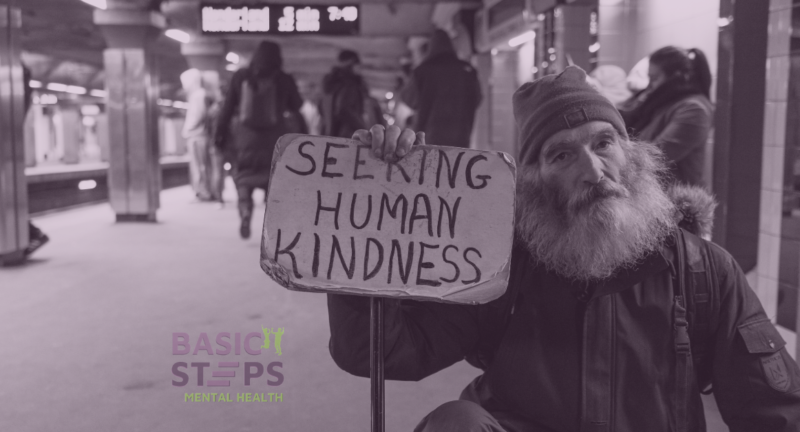
Helping People Help Themselves
Do you know how to help somebody? It would be easier if they allowed us to help that is for sure. The truth of the matter is, we have no control over another person – that’s their job. It is a frustrating fact for us professionals who want to help but in all actuality realize we can’t fix them at all. The real opportunity for us is to fix ourselves. This was the premise of my graduate school. Our student body practiced the counseling skills we learned on each other in hopes of ridding ourselves of our own problems. How could we provide help to another person if we shared the same issue?
Learning to Fix Ourselves
As we fix ourselves, we have less baggage, less hurt, and can be more compassionate towards others because, on some level, we can relate to what they are going through. The art form of helping others is to keep ourselves centered and help them help themselves.
Can somebody fix you? They might provide good advice, but ultimately you have to take the action steps and continue the walk. Nobody can do this walk for you.
As a parent, I couldn’t make my young one do what I wanted. Having her clean up her room was a major undertaking. But, if I included myself in the process, it motivated her to join in. Does this mean that we need to do the action steps with someone if they are going through difficulty? It absolutely helps to get involved through supporting them come up with their own solutions and taking the action steps needed.
Because people are so different, in us giving advice to them, it is really us telling them what we would do if we were them, but we aren’t them. Each person is the authority of themselves. As a therapist, it is important to understand that. In listening to them, asking them what their options are, and supporting them in taking those action steps, we empower them. I believe that mostly I am a cheerleader. In praising their efforts, it provides the motivation for them to keep moving forward in their lives.
We Are Emotional Beings
Clients often talk about how their therapists in the past didn’t listen. When a client talks about suicide or traumatic experiences, it takes a lot of courage from them to come out of the darkness and risk getting hurt again. People will relive the experience every time they talk about it. Praise clients for opening up to you. Show them you honor their bravery. Allow them to talk about sensitive issues. The helping profession is a sacred one. The mere fact that you are listening and care about them is incredibly healing.
We are emotional beings. When we are in a crisis, all logical thought gets tossed out the window. In going into great detail with a person about how they should deal with a problem may fall on deaf ears. Gentle words of encouragement work best. After the dust settles, and their emotions calm down, then you can help them plot out action steps, but only if they ask.
Letting Them Be The Hero To Themselves
In my 25 plus years of therapy, one phrase has gotten me through some pretty difficult sessions. “God Bless You, I Love You”. I will repeat this phrase internally to keep my heart open and avoid listening to things that upset me. You try listening to soldiers talk about their experiences. Even therapists can reach their limits. I can be there in body when things start to sound gruesome, but at least I am providing the client with a safe space to get things out of the dark and into the light.
To sum things up, it is important for us to let a person talk about what is bothering them and come up with their own solutions. No advice, no shaming, just having an open heart and showing them we care can do the trick. Sounds simple? Not really. Especially if you are determined to fix people. They have the ability to fix themselves and it is our process of letting go of being the hero to letting them be the hero to themselves.
I’ll leave with a funny story about the time I coached Little League baseball. I liked to play “Poor Dumb Scott” in which I pretended not to know how to throw the ball or hit and the team would step me through the process – often leading us all to laughter. On one occasion we were teaching the kids to bat and one player kept stepping into “The Bucket” which means he stepped far away from the plate and continually missed hitting the ball. Even playing poor dumb Scott didn’t help this kid. He said hitting was scary to him but he wanted to try to hit from the other side of the plate because he tried it at home and it worked. After he switched sides, the kid began hitting the ball throughout the whole field! It was like a whole different player had just shown up! He told us later on that he wasn’t afraid on the other side of the plate and it was easier for him to remember the fundamentals.
Compassionate Care is Always Available
Consider us at Basic Steps Mental Health. We do treatment differently from the inside out. We care about you and are dedicated to reconnecting you with the loving person at your center. Schedule a free consultation today. We provide real treatment the way you always wanted it to be.
Related Posts
Helping People Help Themselves
Do you know how to help somebody? It would be easier if they allowed us to help...
Changing the Old School Approach
As the clinical director of Basic Steps Mental Health, I have the honor of...




